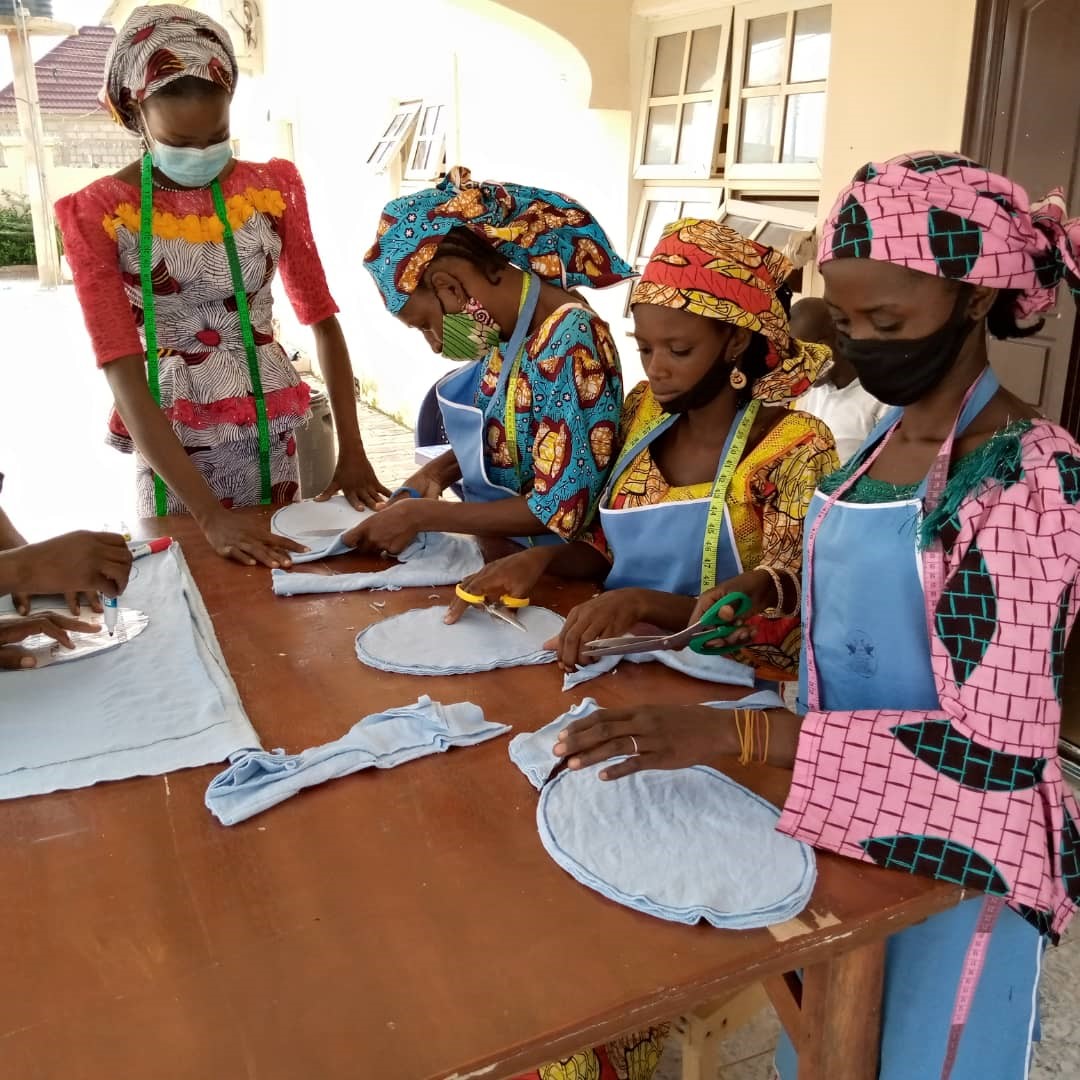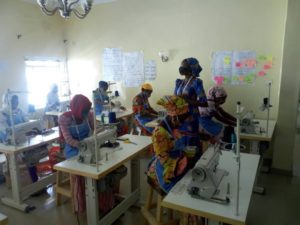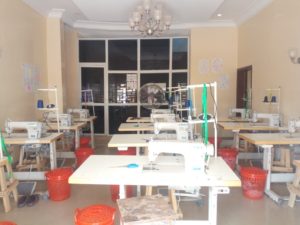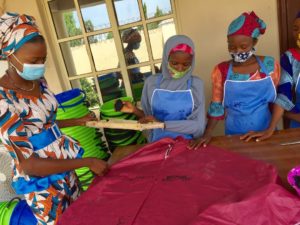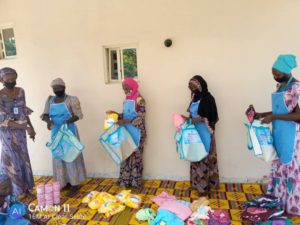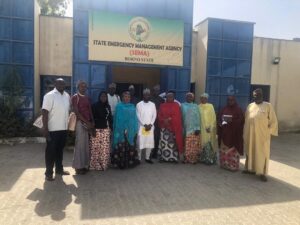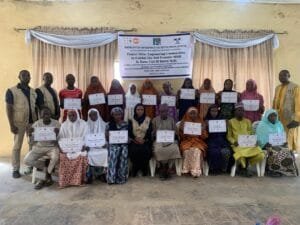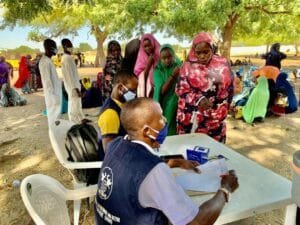To increase access to critical dignity and menstrual hygiene services of women and girls of reproductive age, REBHI established dignity kit production and assemble center (funded by NHF). Twenty (20) affected women and girls of reproductive age in Jere and Monguno LGA of Borno state were empowered and trained on the production of standard reusable sanitary pads and assembly of dignity kit for self-dependence.
The training started with the theoretical aspect and the topics treated includes;
- Menstruation and its processes
- Signs and symptoms of menstruation
- Breaking the culture of silence around menstruation
- Consideration for choosing sanitary pads materials
- Good practices of menstrual hygiene
- Reusable sanitary pads usage and maintenance
- Methods of sanitary pads disposal (including old reusable pads).
- Common infections related to poor menstrual hygiene management and ways of preventing them.
- cooperative
Practical aspect
- Safety measures to be taken while working at the production center.
- Machine usage and maintenance
- Measurement of different shapes of reusable sanitary pads.
- The cutting, sewing, overlocking, buttoning and branding processes.
- Measuring, cutting of sanitary packaging bags.
Achievements
- There is a considerable knowledge gain in terms of menstrual hygiene management among the trainees
- There is changed in perception toward the harmful cultural practices as regards to menstruation.
- The beneficiaries now can produce an average of 250 sanitary pads per day.
- The cooperative has strengthen the group’s unity.
- The beneficiaries invested in different businesses for financial sustainability while others were able to solve their most pressing family needs.
REBHI dignity kit and assembly center is made up of five different departments namely;
- Cutting department
- Sewing department
- Overlocking department
- Buttoning department

